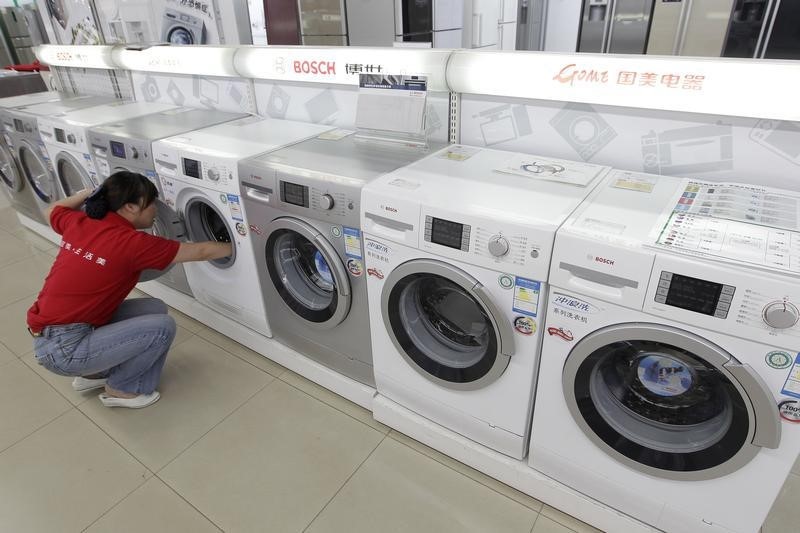By Kevin Yao
BEIJING (Reuters) - Beijing's efforts to put China's economy on a more sustainable growth path are focussing on shifting from investment-intensive manufacturing jobs to the services sector, but clumsy attempts to force the transition could do more harm than good.
As China looks set to post its slowest annual economic growth in decades on Tuesday, officials hope that a rapidly expanding service sector will generate more than enough jobs to offset losses in inefficient "sunset" industries which have been heavily reliant on export demand.
By doing so, they hope to mimic the success of the United States, which started out as a manufacturing powerhouse but ended up with 80 percent of its economy driven by services - in particular in finance and software.
But some fear China's approach may risk duplicating failed attempts in Latin American countries, where halving the share of manufacturing in their economies in favour of services failed to pay off, leaving them in the infamous "middle-income trap", where wages have risen but economic growth slows.
"It's too early for China to give up manufacturing," said Zhu Baoliang, chief economist at the State Information Centre, a top government think tank in Beijing.
Many believe that China is headed straight into this trap, given signs that its productivity growth has gone into reverse since the global financial crisis.
Services accounted for 46.9 percent of the economy in 2013, while the secondary sector - which includes manufacturing and construction - accounted for 43.7 percent.
The issue, economists say, is that not all services jobs are created equal; most laid-off factory workers are not being retrained for higher paying jobs in finance or software, but rather made into minions at restaurants and amusement parks.
That may keep official unemployment statistics low, but the long-term economic contribution is debatable.
"Services have become a key driver of employment, but the problem is services are less productive than manufacturing," said Qu Hongbin, chief China economist at HSBC in Hong Kong, adding he thinks the trend could be a "prelude" to China's economy becoming more similar to South America's than North America's.
POUNDING SWORDS INTO SOUVENIRS
Hebei is a standout example of the risks involved of forcing such a transformation too quickly.
The province, which abuts Beijing, is China's biggest steel producer and home to seven of the country's 10 smoggiest cities.
As such, the central government has pushed it to shut down factories and incubate services instead, thus reducing the pollution that routinely chokes Beijing and creating jobs for the nearly 600,000 workers predicted to become redundant as factories idle.
Services in Hebei grew by 10 percent in 2013, far above its economic growth rate of 6.5 percent, and matching a nationwide expansion in jobs led by the services sector even as manufacturing employment has slid.
The transition has been led by companies like the Kailuan Mining Group, in the city of Tangshan, which invested around 700 million yuan ($113 million) to re-employ its displaced miners, in an industrial theme park.
"The steel and mining sectors are in the decline and the air pollution is serious. We need to transform," said Zhou Zetian, a former worker who is now a manager at the park, which features underground expeditions, an industrial museum and other attractions.
The move to tourism is not original; it has been seized by many local governments as a way to quickly add services. Unlike finance or software, tourism jobs don't require much retraining, but the industry - amusement parks in particular - does involve substantial upfront investment in infrastructure and real estate which local governments have experience with.
"Building the service sector always starts with huge fixed asset investment in China," said Andrew Polk, economist at the Conference Board in Beijing. "You focus on tourism. You build amusement parks."
The problem, of course, is that low-end cultural services don't pay very well. A manager at a local human resources agency in Tangshan told Reuters that the city's skilled steel workers and coal miners are reluctant to take a pay cut.
"The transformation is difficult," said Zhou. "We were previously working in the coal industry and don't have much experience in the cultural business."
"It's difficult for under developed inland regions to boost high-end services, especially when economic conditions are not favourable," said Wen Bin, senior economist at Minsheng Bank.
"The traditional, low-value added services still dominate."

($1 = 6.2140 Chinese yuan)